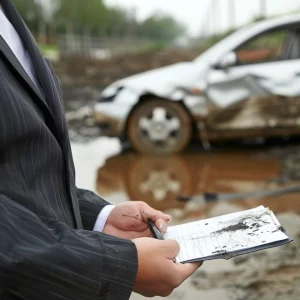In personal injury law, punitive damages are crucial in holding wrongdoers accountable for their actions and deterring future misconduct.
This guide will provide an in-depth look at punitive damages, their purpose, and how they differ from compensatory damages. We will explore the circumstances under which punitive damages are awarded in personal injury cases, the factors considered when determining the amount, and the steps involved in proving their necessity. Additionally, we will discuss the vital role that personal injury attorneys play in pursuing punitive damages on behalf of their clients.
By understanding the importance and intricacies of punitive damages, individuals involved in personal injury cases can better navigate the legal process and seek justice for the harm they have suffered.
What Are Punitive Damages in Personal Injury?
Punitive damages in personal injury cases are monetary awards granted to a plaintiff as a form of punishment to the defendant and deterrence for others. These damages are typically awarded when the defendant’s conduct is deemed particularly egregious, malicious, intentional, or reckless, going beyond ordinary negligence.
Punitive damages signal to the defendant and others that such behavior is unacceptable and will not be tolerated. Unlike compensatory damages, which aim to make the injured party whole again by covering medical expenses, lost wages, and other losses, punitive damages focus on punishing the wrongdoer and discouraging similar behavior in the future.
When Punitive Damages are Awarded in Personal Injury Cases
Requirements for Awarding Punitive Damages
Punitive damages are awarded in personal injury cases when the defendant’s conduct is egregious or malicious. To be eligible for punitive damages, there must be clear and convincing evidence of wrongdoing. This standard is higher than the typical “preponderance of the evidence” standard used in civil cases. The plaintiff must present strong evidence to prove the defendant’s malicious intent or extreme recklessness.
Examples of Situations Where Punitive Damages May Be Awarded
In several situations, punitive damages may be awarded in personal injury cases. These include intentional harm or assault, extreme recklessness or negligence, fraud or misrepresentation, and product liability cases involving dangerous or defective products. In each of these scenarios, the defendant’s actions are considered particularly harmful or malicious, warranting the award of punitive damages to punish the defendant and deter others from engaging in similar conduct.
Factors Considered in Determining Punitive Damages
Severity of the defendant’s conduct
When determining punitive damages, the court will consider the severity of the defendant’s conduct. The more severe the conduct, the more likely punitive damages will be awarded.
Financial resources of the defendant
Another factor considered is the financial resources of the defendant. Punitive damages should be large enough to punish the defendant and serve as a deterrent for future misconduct. This means that the defendant’s financial resources play a role in determining the amount of punitive damages awarded.
Relationship between compensatory damages and punitive damages
Courts may also consider the relationship between compensatory damages and punitive damages when determining the amount of punitive damages. This means that the court may limit punitive damages to a certain ratio of compensatory damages to ensure that the punitive damages are proportionate to the harm caused.
State laws and limitations on punitive damages
State laws and limitations on punitive damages also play a role in determining the amount of punitive damages awarded. Some states have caps on punitive damages, while others do not allow them at all. This means that the specific laws of the state in which the case is being heard will significantly impact whether punitive damages are awarded and the amount of those damages.
How to Prove Punitive Damages in a Personal Injury Case
Gathering evidence of the defendant’s conduct
To prove punitive damages in a personal injury case, it is crucial to gather strong evidence of the defendant’s malicious or reckless conduct. This evidence can include police reports, witness statements, and any documentation that shows a pattern of similar behavior by the defendant in the past. Additionally, expert testimony can be used to highlight the severity of the defendant’s actions and establish that punitive damages are warranted.
Presenting a compelling case for punitive damages
After collecting the necessary evidence, the plaintiff must present a persuasive case for the award of punitive damages. This involves demonstrating the malicious or reckless nature of the defendant’s actions, which goes beyond mere negligence. The plaintiff must also argue that punitive damages are necessary to deter the defendant and others from engaging in similar misconduct in the future. By presenting a strong case, the plaintiff increases the chances of receiving punitive damages as part of their personal injury claim.
The Role of a Personal Injury Attorney in Pursuing Punitive Damages
Evaluating the potential for punitive damages in a case
Personal injury attorneys play a crucial role in evaluating a case’s potential for punitive damages. They assess the severity of the defendant’s conduct and consider state laws and limitations on punitive damages. This evaluation helps determine if pursuing punitive damages is viable for their client.
Advocating for the plaintiff’s right to punitive damages
Once the attorney has determined the potential for punitive damages, they advocate for the plaintiff’s right to receive them. This involves presenting evidence and arguments for punitive damages during the trial or negotiations. The attorney may also negotiate with the defendant’s legal team or insurance company to reach a fair settlement that includes punitive damages.
Ensuring compliance with state laws and regulations
Navigating the legal complexities surrounding punitive damages can be challenging. Personal injury attorneys ensure compliance with state laws and regulations, protecting the plaintiff’s rights and interests throughout the legal process. By staying up-to-date with the latest legislation and case law, attorneys can effectively advocate for their clients and help them receive the compensation they deserve.
Conclusion
Punitive damages in personal injury cases serve as a punishment for defendants and a deterrent for future misconduct
In personal injury cases, punitive damages are crucial in punishing the defendant for their malicious or reckless behavior. These damages are intended to penalize the defendant and deter them and others from engaging in similar conduct in the future.
Awards of punitive damages depend on the severity of the defendant’s actions, financial resources, and state laws
The amount awarded for punitive damages is influenced by several factors, including the severity of the defendant’s conduct, their financial resources, and the specific laws of the state where the case is tried. Courts may also consider the relationship between compensatory and punitive damages in determining an appropriate award.
Working with a personal injury attorney can help plaintiffs pursue punitive damages and protect their rights throughout the legal process
Collaborating with an experienced personal injury attorney is essential for plaintiffs seeking punitive damages. An attorney can assess the potential for punitive damages in a case, considering the severity of the defendant’s actions and any state laws or limitations. They can advocate for the plaintiff’s right to punitive damages by presenting evidence and arguments in favor of an award, negotiating with the defendant’s legal team or insurance company for a fair settlement, and ensuring compliance with state laws and regulations. Ultimately, a personal injury attorney can help plaintiffs protect their rights and interests throughout the legal process.












